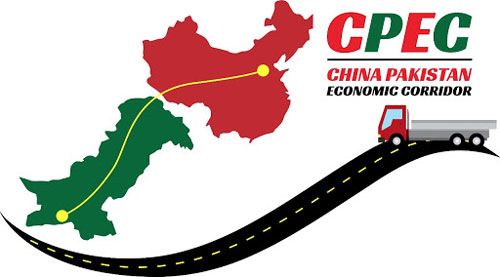CPEC: A key to Pakistan’s economic development
WITH huge investment in the form of the Belt and Road Initiative (BRI) combined with diplomatic engagements, Beijing has put the region on the path of economic development and prosperity. China is playing a key role in regional economic development by initiating infrastructural development projects, industrial zones and energy which are key to sustainable development. The China-Pakistan Economic Corridor (CPEC), the flagship project of the BRI, has deepened the long-standing relationships between China and Pakistan. Under the banner of CPEC, China has made huge investment in Pakistan which is so far the largest Foreign Direct Investment (FDI) agreement signed between Beijing and Islamabad.
With the launch of the CPEC, Pakistan has become a key player for China in achieving its geo-economic goals and becoming a global power. China has made huge investment in various sectors of Pakistan, and many of the projects have been completed successfully, improving Pakistan’s energy sector, infrastructure and communication. CPEC has the potential to transform Pakistan`s economy and put it on the road to sustainable development. Infrastructure, energy, industrial zones and transportation are the main areas of CPEC that are key to sustainable development. In addition, FDI, technology, foreign exchange, new market access and capital are giving a fruitful outcome for Pakistan.
CPEC projects are presently focused on industrial cooperation, agricultural cooperation, science and technology, information technology, and socio-economic development. So far, 26 CPEC-Early Harvest Projects, 14 projects, including the Karachi-Lahore Motorway, Multan-Sukkur Section, KKH Phase II upgradation and reconstruction from Raikot to Islamabad via Mansehra, the East Bay Expressway, the 1320 MW Port Qasim Power Plant, the 1320 MW Sahiwal Power Plant, and the 720 MW Karot HPP, have been completed, while currently five projects, including the New Gwadar International Airport and the 873 MW Suki Kinari HPP are under progress.
The second phase of CPEC has begun and will significantly augment social development, health-capacity building, agriculture development and most importantly a vast network of Special Economic Zones (SEZs). According to Pakistan’s annual plan for (2022-23), the CPEC Phase-II will prioritize socioeconomic development, industrialization and the establishment of Special Economic Zones, modernization of agriculture, science and technology collaboration, promotion of ICT-enabled environment and establishment of IT and high-technology Zones. Industrialization appears to be the cornerstone of CPEC Phase-II which will offer crucial sources of economic growth and support the creation of additional jobs in the nation. In the global economic development model of today, the creation of new employment possibilities is regarded as one of the key drivers of economic advantage trickling down.
The IT sector of Pakistan is also witnessing positive changes as the CPEC-led cooperation on IT and the digital economy is expected to reach $10 billion by the year 2025. Currently, Pakistan has more than 2,000 software Research and Development (R&D) centers, making it the fourth largest base for free IT practitioners in the world. In addition, CPEC has significantly addressed Pakistan`s energy shortage. The historic project produced positive results in Pakistan’s energy sector, attracting USD$ 25.4 billion in investment and assisting the country in overcoming chronic energy issues by adding 6040 megawatts of electricity.
Beijing`s successful diplomatic engagement with geoeconomic initiatives have resulted in regional countries’ interest in becoming part of the CPEC. Saudi Arabia, an important country in the region, has also expressed its willingness to become part of CPEC. Riyadh is keen to become part of CPEC and BRI by making huge investment in these megaprojects. Riyadh has already signed a $20 billion investment package with Pakistan during Crown Prince Mohammad bin Salman’s visit to Pakistan in 2019, the largest in the history of Pakistan and carrying extraordinary significance.
The Chinese President’s recent visit to Saudi Arabia and the signing of 20 agreements worth more than $29.3 billion, as well as its interest in harmonizing the implementation of Saudi Arabia’s Vision 2030 and the BRI, demonstrate Xi’s geo-economic policies’ great success. The visit by the Chinese President comes at a critical juncture in the Kingdom’s efforts to expand global alliances. The signing of these projects would result in significant growth in Pakistan. Xi`s visit to Riyadh, Saudi Arabia could serve as a “great convergence point” between Pakistan, China and Saudi Arabia. Besides, it could give momentum to the Saudi investment in the flagship project of the BRI.
The strong China-Saudi relations and convergence of their economic interests will also open new opportunities for economic development in Pakistan, benefiting the latter massively. Their agreement on investment in CPEC and economic cooperation is likely to enhance Pakistan`s access to the global market enhancing FDI in the country. CPEC has greatly improved transport infrastructure in Pakistan, helped Pakistan mitigate its long-standing energy issue, improved communication and created a large number of employment opportunities for the local people.Pakistan needs to implement a comprehensive economic plan and utilize these economic opportunities.
CPEC has already entered its second phase, Pakistan needs to review how it can improve the megaproject`s effectiveness for mutual benefit. Also, Islamabad should learn about what China got right and how to uplift its economy. Pakistan`s National Security Policy 2021 has already signalled a shift from geopolitics to geoeconomics. Pakistan needs to take pragmatic measures to ensure the successful implementation of its PNSP-2021 and achieve its geo-economic goals and strengthen its economy.









